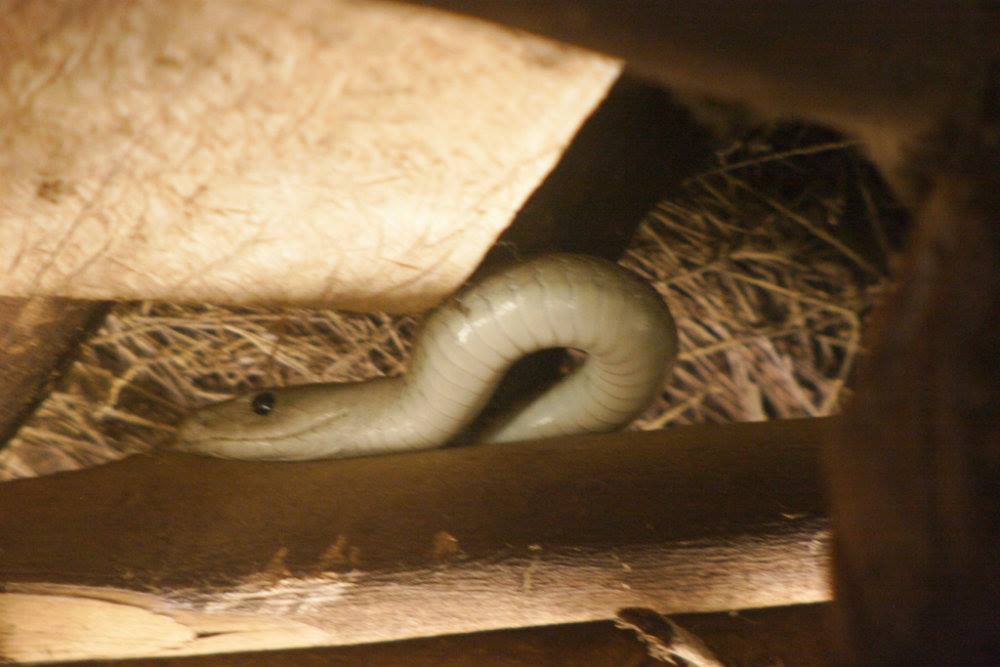
Snakebite Awareness Day: What you should know
Snakebites cause between 81,410 and 137,880 deaths annually.
Snakebite is one of the tropical neglected diseases causing a lot of harm to people and livelihoods

Audio By Vocalize

A snake/File
Scientists have urged Kenyans to venture into snake farming, saying the venture is a multi-billion business whose potential is yet to be explored.
Kenya Wildlife Service director general Erustus Kanga said snake farming portends rewards. “Kenyans must venture into snake farming. It has a lot of potential,” Kanga, who prides himself as a promoter of snake farming, said.
The director general was one of the speakers at the ongoing second International Wildlife Scientific Conference at Lake Naivasha resort.
The theme of the conference, which started on Tuesday, is ‘Innovations in wildlife conservation science and practice for socioeconomic development’.
It builds on the success of the inaugural conference held in September 2023, which attracted more than 300 participants and featured 127 scientific papers presented by both local and international researchers.
The conference provides a platform for researchers, conservation practitioners, policymakers, community leaders and international partners to exchange knowledge and deliberate on solutions for sustainable biodiversity conservation.
Statistics show that more than 20,000 people are bitten by snakes annually in Kenya. Some 4,000 die from snake bites while 7,000 others are paralysed or suffer health complications. Kenya currently imports antivenom from Mexico and India.
Dr Stanislaus Kivai, senior research scientist at the Kenya Institute of Primate Research, said they are also doing work on snakes.
Kivai said they are in the process of developing a Kenyan-tailored kind of venom through the Kenya Snakebite and Antivenom Centre.
“Snake farming is a great thing given its medical importance in terms of venom,” he said, adding that snakebite is one of the tropical neglected diseases causing harm to people and livelihoods.
Other than the economic importance, Kivai said snakes can be utilised for tourism.
“There are a number of snake parks around the country including the national museums. Communities can take advantage of snake tourism. Chameleons in Madagascar are a tourist attraction,” he noted.
KWS issues licenses for those interested in snake farming. Interested parties can download the license application form for Authority to Operate Wildlife Utilisation Enterprise from its official website.
The agency has also developed a manual for captive wildlife management and welfare in Kenya.
The guidelines provide for the protection, conservation and management of captive wild animals, recognising that wildlife is an important national heritage.
It is illegal to keep any wild animal in captivity in Kenya without KWS authority.
Wild animals can only be kept in captivity for specific reasons, including if the animal is critically sick, injured, orphaned, or being quarantined. Wildlife can also be kept for research, education, or if confiscated from smugglers.
Any entity seeking to establish a captive facility must seek permission from the KWS director general. License holders must keep up-to-date records and submit quarterly and annual reports.
The guidelines also provide for displays (ecotourism), breeding for export, venom extraction, research and conservation. Clear signs indicating names of snakes must be in place, with marked footpaths for visitor safety.
The size of the snake box should depend on the reptile’s size. All boxes must be kept clean and have a water container. Each cage should be rectangular with an opening on top for safety.
For climbing snakes, branches should be provided to mimic their habitat. Boxes with poisonous snakes must be padlocked with a partition for safety.
Open pens should have a water pond and be kept clean. All personnel should be conversant with practical reptile husbandry and include a qualified member with a biological background. Experience in handling poisonous snakes and venom milking is mandatory.
Close supervision for on-job training in reptile biology, venom milking and snakebite management should be offered for a minimum of one year. Personnel must understand the conservation status of the species kept.
A first aid kit and relevant antivenom must be kept in a fridge at the facility for inspection.

Help us continue bringing you unbiased news, in-depth investigations, and diverse perspectives. Your subscription keeps our mission alive and empowers us to provide high-quality, trustworthy journalism. Join us today to make a difference!

Snakebites cause between 81,410 and 137,880 deaths annually.

Snakebite Awarenes Day was held on September 19.